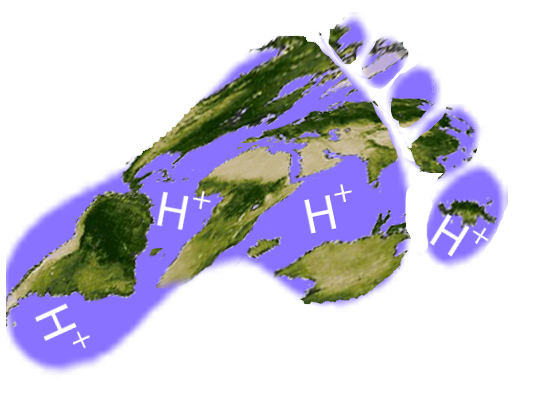
In addition to the famous impacts of atmospheric carbon on global warming, there is an equally worrisome effect of carbon dioxide on the oceans: ocean acidification (or OA for short). Here at I2SEA we have a series of resources about OA, including Our Acidifying Ocean, which is an introductory activity and virtual lab (note: now mobile compatible!).
A student suggested that we start a conversation topic about OA, and here it is! Have you heard about Ocean Acidification? If so, are you worried about it? How do you think we can best raise awareness about it among your fellow students and the general public? Have you seen particularly good links or films about OA that you would like to share? What are you doing to address the problem?
Ocean Acidification >
Ocean Acidification: A threat to our reefs and our world

Ocean Acidification is one of the lesser-known side effects of climate change and the output of excess carbon dioxide in the atmosphere, yet is just as threatening to our earth as many other effects. Ocean Acidification refers to the reduction of pH levels in the oceans caused by an excess of carbon dioxide in the air, causing the ocean to become more acidic. Oceanic Acidification is not given justice for the imminent threat and side effects it will bring, and we must work together to find solutions for this pressing issue. Every day, almost 30% of released carbon dioxide in the air is absorbed by the ocean, which adds to millions of tons daily. The carbon dioxide in the water causes a chemical reaction with the water, resulting in an uptake in the acidity levels or a lowering of the pH levels. These higher pH levels can result in harm to many marine creatures but are very harmful to coral reefs. Coral reefs are the base of many oceanic ecosystems and are integral to aquatic life. Coral reefs grow by building a carbon-based skeleton, and when the acidity level is too high they cannot build their skeletons, resulting in smaller coral reefs. When our coral reefs are smaller, there is less marine life due to the many species that rely on the shelter of coral reefs. Oceanic pollution also results in the bleaching of coral and more coral diseases like stony coral tissue loss disease(SCTLD). When you combine the higher rate of death of our coral reefs with the slowed growth rate, it is not impossible to imagine the rapid descent of the reefs of the world. Without the reefs, we would see a significant decrease in all marine life, especially those species that normally rely on the reefs. Coral is a keystone species, and without it, there is no telling the damage it would do to our ecosystems everywhere, all due to the pollution and fossil fuels that are burned every day.
sources: https://oceanservice.noaa.gov/facts/aci … atmosphere.
https://www.coris.noaa.gov/activities/m … ral_decay/





